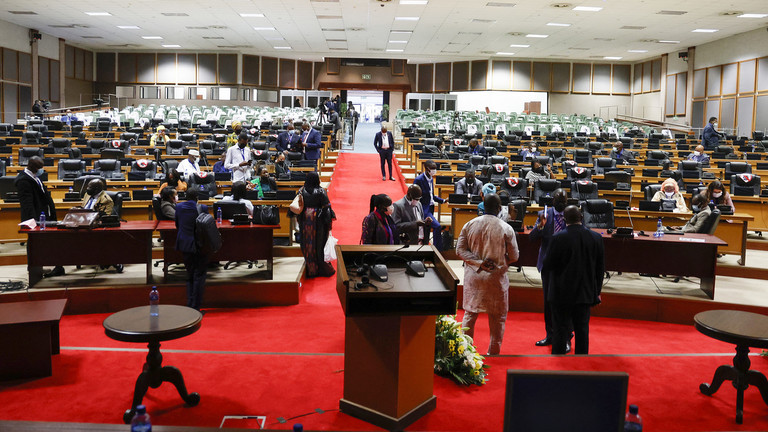Do you know how you can tell when a giant social network is trying to hide something? When one of its executives claims its service is “just a platform.”
You know how you can tell when the company doesn’t believe its own excuse? When that executive isn’t even the CEO.
This much has been obvious to many people outside and inside Silicon Valley for years now. But too many leaders in Big Tech still appear to think that having an underling utter this incantation will dispel the latest crisis.
No company has better illustrated this lately than Facebook (FB) since the Guardian and the New York Times reported Saturday that a researcher hired by the Trump-linked marketing-research firm Cambridge Analytica had obtained the data of as many as 50 million Facebook users in 2013 by lying to 270,000 of their friends about the ultimate use of a personality-quiz app.
How not to talk to your users
Since then, the social network has conducted a master class in how not to deal with a crisis. It hasn’t explained why it didn’t do more when it learned in 2015 of the Cambridge Analytica data heist — it hasn’t even said if it notified the people who took the quiz or the friends whose data was swept up via a feature Facebook closed in 2015.
(The odds are it hasn’t, since it still has no policy requiring it to notify users if an app they installed broke its own rules. So first Facebook leaves it to you to decide to trust a third-party app on its platform, then it leaves it to you to discover if the app betrays your trust.)
Instead, Facebook’s initial response amounted to “we’re mad too, we didn’t realize that people could abuse our platform like this, but please don’t call this a data breach.”
Facebook’s top leadership seems to have switched its own visibility on this subject to “Friends Only.” CEO Mark Zuckerberg and chief operating officer Sheryl Sandberg, the two faces of the franchise, have yet to speak even as Facebook’s stock has reeled.
The most public and useful comments have come from two lower-ranking executives — and on Twitter, not Facebook. Chief security officer Alex Stamos and augmented-and-virtual-reality vice president Andrew Bosworth have provided straightforward, humane responses there.
Alas, Stamos—a clear-eyed security expert and, earlier, chief security officer at Yahoo Finance’s then-parent firm Yahoo — may not speak for Facebook much longer. A New York Times story Monday said he will leave the company in August.
We’ve seen this movie before
Facebook can at least point to plenty of precedent. Major social networks went through almost the exact same exercise over the last two years as it became increasingly obvious how badly they’d been abused by fake-news vendors and then Russian social-media operatives.
Then as now, the initial reflex was to back away from responsibility. The damage wasn’t that bad, representatives of Facebook, Twitter (TWTR), and Google (GOOG, GOOGL) said. We’re not in the news business anyway, we’re just platforms. We’ll punish the people who exploited our system.
And then as now, the CEOs involved largely directed their subordinates to do the talking. When the Senate Judiciary Subcommittee on Crime and Terrorism wanted to question all three firms about Russian online disinformation efforts in 2016, Facebook’s Zuckerberg, Twitter’s Jack Dorsey and Google’s Sundar Pichai all sent in their lawyers instead.
But now that we’re stumbling through yet another news cycle, this time led by Facebook, the calls are increasing for Zuckerberg to testify in person. Delivering yet another heartfelt monologue via Facebook Live like his Sept. 21 vow to do more against meddling by foreign political operatives — with the audiences that his appearances draw, that’s not a conversation but a lecture — will not cut it.
And thanks to Cambridge Analytica being a British firm, these calls are coming from both sides of the Atlantic. As Damian Collins, a Conservative member of Parliament, put it: “It’s time for Mark Zuckerberg to stop hiding behind his Facebook page.”
There are exceptions
Not all of Big Tech has entirely forgotten how to talk to the public.
Four months after letting his general counsel get grilled by that Senate subcommittee, Twitter’s Dorsey took to his own service — on which users regularly denounce him by his @jack handle for not kicking Nazis off the platform — on March 1 to confess that “we didn’t fully predict or understand the real-world negative consequences” of enabling a public conversation in Twitter’s format.
He added that in trying to kick off content that broke its rules, Twitter had failed to “encourage more healthy debate, conversations and critical thinking.” In fewer words: The problem isn’t just bad actors on the platform, but the design of the platform itself.
When we see Zuckerberg make an admission like that in public, we’ll know Facebook has at least realized the depths of its problems. But at this point, seeing Zuckerberg speak publicly at all about the Cambridge Analytica debacle might represent progress — unless he only does so after Congress compels his testimony.

 FINANCE12 months ago
FINANCE12 months ago
 NEWS12 months ago
NEWS12 months ago
 FINANCE12 months ago
FINANCE12 months ago
 FINANCE12 months ago
FINANCE12 months ago
 WAR12 months ago
WAR12 months ago
 NEWS12 months ago
NEWS12 months ago
 NEWS12 months ago
NEWS12 months ago
 NEWS12 months ago
NEWS12 months ago























































